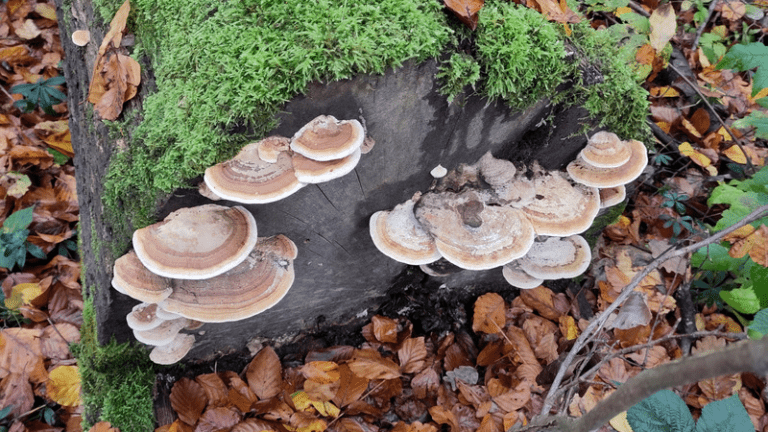How to Reach the Flow State - And Profit From It
It's a great feeling every time I get into the flow state. It used to happen from time to time. By sheer coincidence. And I wasn't really aware of what was happening.
Being in flow was a concept to me, but I had no idea how much more is hidden behind it. After I have dealt with this topic for a long time, I reach it much more often. And more purposefully.
I still do not understand all facets of this phenomenon and probably never will. But I notice how I benefit more and more from this and would like to share my thoughts and experiences with you.
What is the Flow State
The flow state is when you completely dissolve into an activity while doing it. One forgets the time and also many other trivialities from the eyes. This can happen with almost any activity, if you only devote yourself to it.
Even if at first it is not directly understandable what it means to be in flow, everyone knows the feeling. You pursue an activity and lose yourself in it, you literally dissolve into it. Time flies by and you don't even notice it. Whether it's learning, painting, making music, sports or simply doing something with friends.
In psychology, the "flow state" is described as the balancing act between excessive and insufficient demands. That is, when we are in the zone between stress and boredom.
In my opinion, however, there is also the fact that we have to enjoy the activity we are doing. Or at least get something positive out of it. For example, we can get into a flow state when doing chores like doing the laundry or cleaning the bathroom, because we know that the end result will make us feel positive. On the other hand, we may also find ourselves in a state of at Mountain hike with breathtaking views are not in the flow, because we have no fun in running itself, or even the view is not really perceive positive image.
Often we don't even notice that we are in flow. It's only when we pause for a moment and realize that whatever we're doing at the moment is almost taking care of itself.
It also often happens to me that only when I get out of the flow again do I realize that I was in it.
How to reach the Flow State
Like most things in life, getting into the zone is unfair. Some people just need to read a book on a park bench and dive in. For others, it's a long and tough process.
The most important thing is to turn inward as often as possible and ask yourself. Am I in the flow? The more often we ask ourselves this question, the better. Because only when we deal with it, we can notice if everything is running smoothly.
When we go to work.
When we walk through the forest.
When we have a coffee.
When we spend time with a friend.
If only we ask ourselves often enough.
Does this feel right now? If we can understand ourselves better, it will lead us to know which activities put us in the flow state.
In the beginning, it may well be that you are only in flow for 30 seconds in a day. But if we know what those 30 seconds are, we can work toward making it 60 seconds a day. The more we look at what makes us feel good, the better we can navigate this tightrope walk.
It was very difficult for me to find the right degree at the beginning. But the more closely we listen to our inner self, the more clearly we understand what we need to do to get into the flow.
10 hobbies that are particularly suitable for "flow":

Almost any activity can trigger the flow state and is individual. However, it can be observed that the following three components increase the probability of reaching the flow state:
- Progress: Activities in which a small amount of progress is constantly experienced have a high potential for long-term motivation and are usually overstraining to a slight degree, marking the zone between under- and overstraining necessary for the flow state.
- Attention: to achieve the flow state, it is important to devote full attention to the activity. The whole. This is often difficult, especially in our stimulus-flooded environment. Therefore, it is necessary to create spaces free of disturbances (temporally and physically).
- MeaningActivities with meaning are particularly suitable, because the feeling of contributing something makes it easier for us to devote our attention to something. Also the satisfaction is usually correspondingly higher. If this component is present in the activity, flow of the highest level can be achieved.
Remember: the following list is, are hobbies that have especially much potential.
Painting / Drawing:
Progress: You can try and strive for more complex motifs, more harmonious colors and much more.
Meaning: You can add more meaning to this hobby, for example, by starting to sell or donate your pieces.
Knitting:
Progress: There are many different ways to achieve progress in knitting. It can be achieved through new knitting techniques, more complex color patterns, elaborate garments, or simply increased speed.
Meaning: Again, you can give away your works for charity, or sell them.
Cooking:
Progress: The facets for progress in cooking are almost endless. Better selection of ingredients, better preparation (better cutting techniques, better timing in frying, etc.), better taste, more variations of the dish, new dishes, etc.
Meaning: Here, for example, instead of cooking for yourself, you can cook for others or share your recipes with others.
Singing / Making Music:
Progress: The more you make music, the more challenging pieces you will be able to tackle over time. But it's also a kind of progress if you continue to perfect or reinterpret pieces you already know. The possibilities are endless.
Meaning: I don't want to tell you to perform in front of an audience - but it's likely that you could get special fulfillment out of it, because you're entertaining people and giving them something beautiful in life. However, you can also sing just as well for yourself alone and draw meaning from it. For example, if you sing to give yourself pleasure.
Gardening:
Progress: you'll get better at growing things over time and have an eye for the well-being of your crops. You can also grow more demanding plants or try to get better harvests when you grow food.
Meaning: Seeing insects and small animals thrive in your garden and your crops flourish is fulfilling in itself. But you can find even more meaning by sharing your harvest or seedlings with others.
Working with animals:
Progress: Especially when working with animals, there is a strong development in your own abilities, which can be observed in how strong the harmony is between you and the animals.
Meaning: You can find meaning by caring for animals in need, or by teaching others through your work with animals how consideration, respect and affection are critical to a healthy relationship.
Sports / Dancing:
Progress: Sports are known for measuring performance. Therefore, it is probably not difficult to find the ways of progress: become faster, achieve cleaner movements, become stronger, move up to a new league and much more.
Meaning: Often, striving to become the best gives meaning. This can be directed at the public or at yourself. Something you can open up a new area with is charity. Maybe you can find a sponsor who would donate money to charity for your victories.
Walk:
Progress: There is no noticeable progress in walking, as it's not really about getting somewhere quickly. What you can improve, however, is to pay more attention to your surroundings instead of getting lost in your everyday thoughts.
Meaning: When I go for a walk, I just want to switch off. To enjoy a bit of nature or the environment and to perceive it more consciously.
I hope I could give you some food for thought on the topics of progress and meaning. But these two topics, as mentioned earlier, are not everything. You still need the appropriate attention for your activity.
One of the most important criteria is to pursue your passion as often as possible. Only if you manage to develop a routine will you have a real chance of getting into flow-state more regularly.
When you're dealing with things to get you into flow, there's one thing you should absolutely do: shut out distractions. As uncompromisingly as you can for your circumstances. Any interruption can block or break your flow. Start with small blocks of time dedicated to just your "thing" to get used to it and gradually increase.
One more thing. At the risk of sounding strange, your goal should never be to reach the flow state. Instead, you should engage in activities that will help you reach that state. With the tips above, you'll be able to identify activities that position you correctly.
The more often and the deeper you dive into such an activity, you will find more and more of these moments in which things happen effortlessly and as if by themselves.
And in the moments when that didn't work out....
It's definitely tolerable if you don't reach your flow state while doing something you love, right?
Wu Wei
The principle of Wu Wei is a term from Daoism, which is considered the predecessor of Buddhism. Wu Wei means non-action. But since this is too literally translated, I try to translate it a little more freely. Wu Wei means not to force anything. This allows a natural flow of things. You can also say to go with the flow.
This not forcing does not mean that you should not work towards your goals, wishes or dreams. Through its spontaneity it only shows that there are always new ways to achieve them.
Let us now imagine a flowing stream, the stream will never flow through a stone but around it. We can also assume that the stream will not flow uphill, but always takes the path of least resistance. However, we can also say that the stream will never stagnate.
For us, it is often difficult when we have focused on a goal and have mapped out a way to get there. Not to see this path as the ultimate solution. But as we move towards the goal with each step we come closer to open new paths. It is important that we remain spontaneous, that we do not run with blinders through life. So we lose sight of the big picture because of our ambition.
The more flexible or spontaneous we remain, the better we can adapt to our environment. Just as trees bend in the wind to avoid breaking, we must also remain flexible. As Charles Darwin already said "Survival of the Fittest". That is, the best adapted survives.
Wu Wei is not about survival, but about doing the right thing at the right moment.
Did you like this article? You can let us inform you about new articles:








One Comment
Comments are closed.